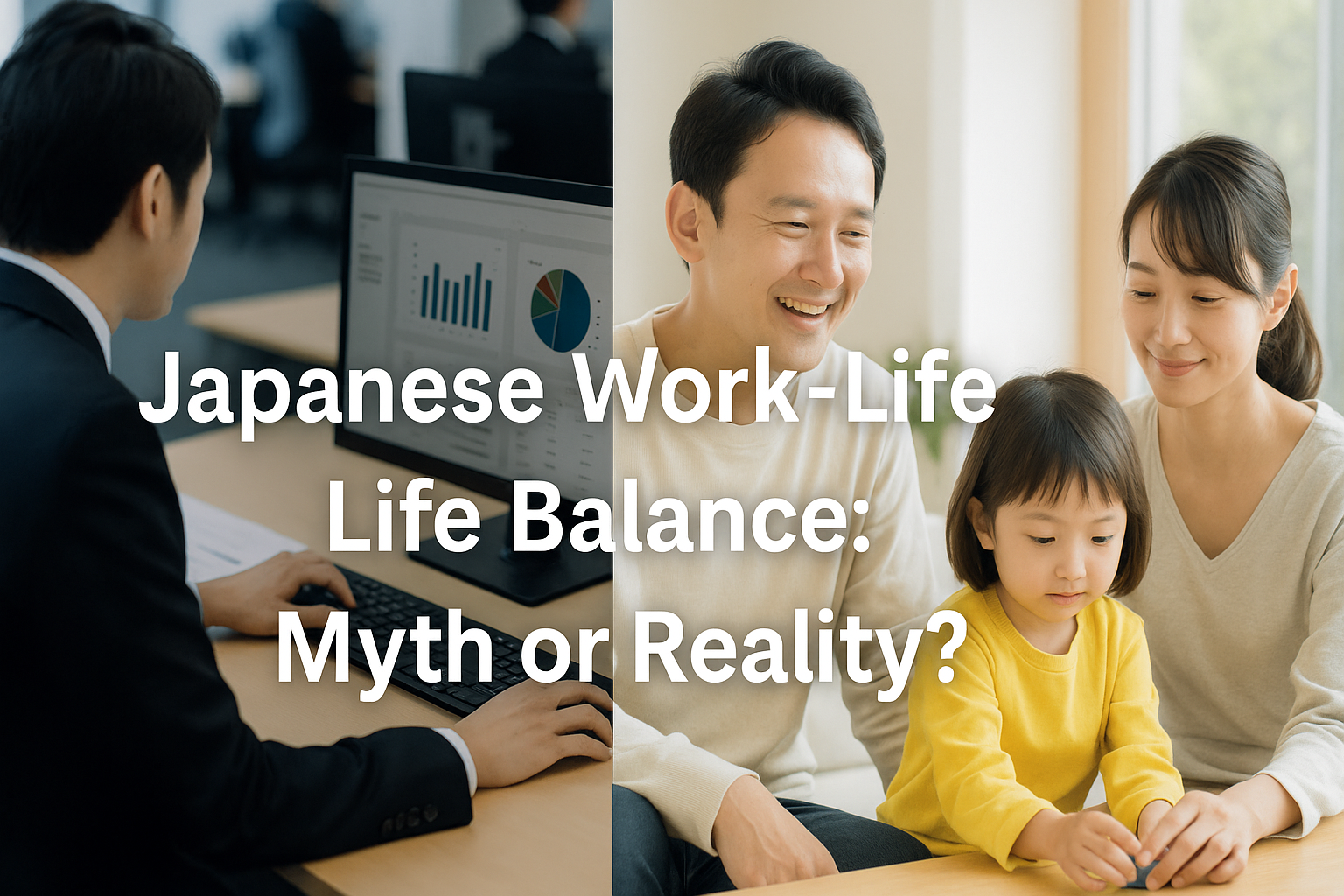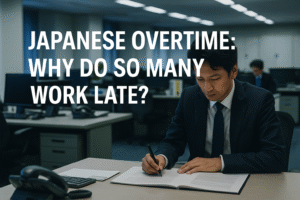Japan has long been known for its hardworking culture — think long hours, late nights at the office, and minimal vacation days. But is that still the case today? Or is the idea of a healthy work-life balance starting to take hold in Japanese society?
Let’s dig into whether Japan’s infamous work ethic is evolving or if it’s still all work, no play.
🕐 Long Working Hours: The Stereotype Is (Mostly) True
While things are changing, Japan still ranks among the countries with the longest working hours. Many employees feel pressure to stay until their boss leaves, and working overtime (zangyō) is often seen as a sign of commitment — even if it’s unpaid.
Some even eat dinner at their desks!
😰 Karoshi: Death by Overwork
Japan’s work culture has a dark side — karoshi, or death from overwork, is a serious issue. It’s led to public outcry and a push for labor reform. The government has even had to step in with new laws to cap overtime hours.
That tells you just how real the problem is.
🔧 Work-Style Reform in Progress
In recent years, Japan has implemented 働き方改革 (hatarakikata kaikaku), or “Work-Style Reform,” aiming to:
- Reduce overtime hours
- Encourage use of paid leave
- Promote flexible work schedules
- Support work-from-home systems
Some companies have adopted “no overtime days” and even offer nap breaks. Progress is slow, but it’s happening.
🏖️ Vacation Time: Still Underused
Here’s the catch: even though full-time workers are entitled to paid vacation, many feel guilty taking it. Why? Because coworkers might have to cover for them, or it might look like they’re not dedicated enough.
The average number of vacation days taken is still low compared to Western countries — though it’s increasing little by little.
👩👩👧👦 Work-Life Balance for Families
Balancing work and family is especially challenging in Japan. For a long time, men worked while women stayed home — but this is changing.
Dual-income households are becoming the norm, and more dads are taking ikuji kyūka (paternity leave). The government is trying to encourage this with subsidies and awareness campaigns.
💻 Remote Work: A Pandemic Push
COVID-19 gave remote work a big boost in Japan. While some companies quickly returned to in-office work, others have continued hybrid or remote setups. This shift has helped many people spend more time with family and cut down on long commutes.
💬 Final Thoughts
So — is work-life balance in Japan a myth or reality?
The answer is: it’s evolving. The old ways haven’t vanished, but a new generation of workers and a changing world are pushing Japan toward a healthier balance between life and work. Slowly but surely, things are shifting.
If you’re thinking of working in Japan, expect long hours — but also know that a better balance is on the horizon.








